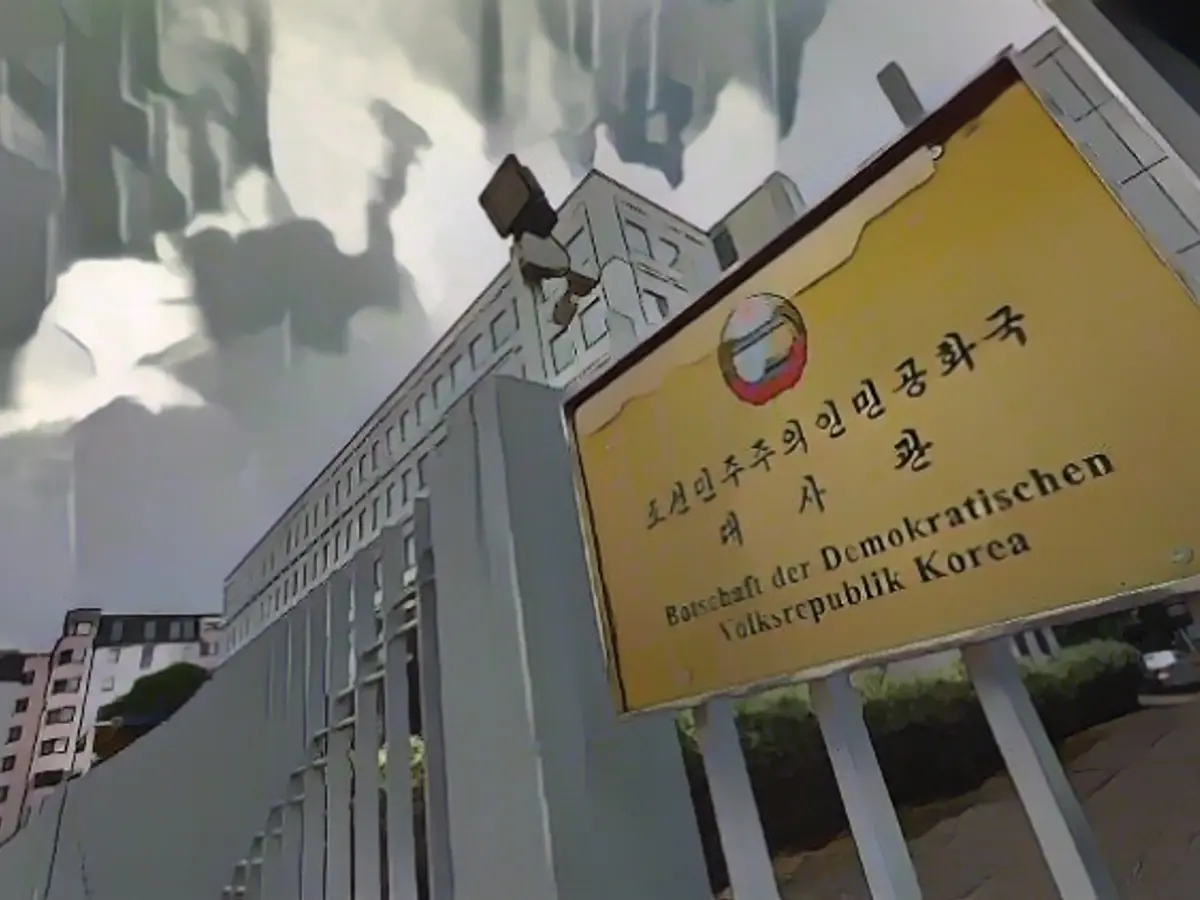Updating Diplomatic Dynamics in North Korea
North Korea, known for its extensive network of embassies worldwide, has recently closed several of its foreign missions. This move, the regime claims, is part of a "process of change" to make diplomatic capacities more efficient. The closure affects numerous countries, including important allies from the past such as Angola and Uganda.
In reality, these closures might be more indicative of North Korea's financial struggles. Fronted by Kim Jong Un, the country has been grappling with international sanctions, making it increasingly difficult to stay afloat financially. The foreign embassies are mainly funded by illegal transactions and the construction and IT sectors, but Western sanctions have virtually halted foreign exchange transactions.
The most significant impact of these closures appears to be on embassies in Africa and the representative office in Hong Kong. The Japanese newspaper "Yomiuri Shimbun" reported these developments, and experts anticipate one of the country's biggest foreign policy upheavals in decades [1][2].
While North Korea plays down the closures, the Kim regime acknowledges the necessity of reassessing diplomatic priorities. This strategic move is expected to strengthen North Korea's "new Cold War diplomacy" and further intensify its cooperation with countries such as China, Russia, Syria, Iran, and Cuba.
International relations with major partners like China and Russia remain critical. Only recently, Kim Jong Un met with Russian President Vladimir Putin, negotiating the provision of ammunition for Ukraine in exchange for aid to North Korea's space program. Strengthening economic relations with Beijing and Moscow is a key part of Pyongyang's strategy to survive [1][2].
Regional Implications and Strategic Partnerships
As North Korea closes several diplomatic missions, its strategic priorities shift towards strengthening military alliances. The regime has been drawing closer to Russia, supporting its war against Ukraine with troops and weapons. In exchange, Russia provides aid to North Korea's space program and oil. This arrangement has increased Russia's dependence on North Korea, reducing China's leverage over its neighbor's behavior [2][3].
Deterrence dynamics between China and North Korea have also shifted. The strengthening of the Russo-North Korean alliance has weakened China's ability to restrain North Korea's military policies and has reduced China's economic-political leverage over the country. Anxious Chinese leaders watch as their control over North Korea's escalation potential erodes [3].
In summary, North Korea's embassy closures might be a result of financial difficulties and a strategic shift towards strengthening its military alliances with China and Russia. The recent meetings between Kim Jong Un and Russian President Vladimir Putin demonstrate this fascinating twist in East Asian geopolitics.
Source:
Enrichment Insights:
- Regional Implications: North Korea's strategic alliances with China and Russia have wide-ranging implications for East Asia. The stabilization of the Korean peninsula and the potential to reverse North Korea's nuclear weapons program relies heavily on a cooperative and peaceful resolution of the conflicts in Ukraine and Northeast Asia.
- Nuclear Weapons Program: North Korea's pronouncements on its nuclear weapons program iluminate its intentions. Kim Jong Un has stated that he will not abandon the country's nuclear arsenal, considering it essential to North Korea's security. The expansion of North Korea's nuclear program poses a significant threat to regional and global stability.
- Military and Strategic Partnerships: North Korea's relationships with countries like Russia and China bring increased military support and nuclear capabilities. It also reduces regional tensions and encourages nuclear proliferation, which could create an arms race in East Asia.
- Economic Constraints and Sanctions: The ongoing conflicts between Ukraine, the U.S, and China pose economic constraints for North Korea. International sanctions restrict trade and financial flows, increasing pressure on North Korea's foreign exchange reserves.
These Enrichment Insights provide further depth and context to the original article, but they remain secondary to the primary focus on North Korea's embassy closures and their likely impacts on the regime's diplomatic and financial situation.








